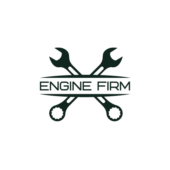SEO for Automotive Industry
SEO plays a vital role in boosting website visibility, driving organic traffic, and improving search engine rankings within the automotive industry. Tailored SEO strategies are essential for automotive companies to enhance brand visibility, increase website traffic, and ultimately drive sales in a competitive market.
Optimizing for search engines is crucial for automotive sales as it helps businesses reach potential buyers actively seeking automotive products and services online. By focusing on SEO, automotive companies can ensure that their websites appear prominently in search engine results, increasing the chances of attracting qualified leads and converting them into customers.
SEO for Automotive Industry presents unique challenges due to the competitive nature of the industry and the specificity of search queries related to vehicles. Companies often struggle with optimizing for a wide range of keywords, staying updated with search engine algorithms, and competing for visibility against both local and national competitors. Overcoming these challenges requires a deep understanding of automotive consumer behavior and continuous adaptation to the evolving digital landscape.
Ensuring that automotive websites rank well in search engine results is crucial for attracting potential customers. Implementing effective SEO practices tailored to the automotive industry can significantly boost website visibility and drive organic traffic.
Optimizing for local search is vital for automotive websites as many customers search for nearby dealerships or service centers. Including location-specific keywords, creating Google My Business listings, and obtaining positive reviews are essential strategies to improve local search rankings. By focusing on local SEO, automotive businesses can reach customers in their vicinity and drive more foot traffic to physical locations.
With the rise of mobile device usage, it’s imperative for automotive websites to be mobile-friendly. Optimizing websites for mobile devices ensures a seamless user experience, reduces bounce rates, and improves search engine rankings. Mobile optimization includes implementing responsive design, fast loading times, and easy navigation. By prioritizing mobile optimization, automotive companies can cater to the growing number of users accessing websites on their smartphones and tablets.
Essential Tools for Automotive SEO Success
Keyword research tools play a crucial role in optimizing automotive websites. They assist in identifying relevant keywords that potential customers are searching for online.  By using tools like SEMrush, Ahrefs, or Google Keyword Planner, automotive companies can discover high-volume keywords to target in their content and drive organic traffic effectively.
By using tools like SEMrush, Ahrefs, or Google Keyword Planner, automotive companies can discover high-volume keywords to target in their content and drive organic traffic effectively.
Analyzing and measuring website performance is vital for automotive SEO success. Utilizing tools such as Google Analytics and Google Search Console helps track key metrics like website traffic, user behavior, and keyword rankings. These tools provide valuable insights to optimize website content and improve overall SEO strategies for better visibility within the automotive industry.
Future Trends in Automotive SEO
Automotive companies should prioritize optimizing their SEO strategies for voice search. With the rise of virtual assistants like Siri, Alexa, and Google Assistant, voice search is becoming increasingly prevalent. To cater to this trend, automotive websites need to focus on long-tail keywords and conversational phrases that align with how people speak when using voice search. By incorporating natural language queries into their content, automotive businesses can enhance their chances of appearing in voice search results.
The integration of artificial intelligence (AI) in SEO is revolutionizing the automotive industry’s digital marketing landscape. AI algorithms can analyze vast amounts of data to predict trends, consumer behavior, and search patterns more effectively. Automotive businesses can leverage AI-powered tools to personalize content, optimize user experiences, and improve search engine rankings. By harnessing the power of AI in SEO strategies, automotive companies can stay ahead of the competition and deliver tailored solutions to meet evolving customer needs.
SEO for Automotive Industry plays a pivotal role in the automotive industry by driving website visibility, organic traffic, and search engine rankings. Tailored strategies are essential for boosting brand visibility, website traffic, and sales amidst industry competition. Understanding consumer behavior and adapting to the digital landscape are crucial for success. Optimizing for local search and mobile devices enhances user experience and attracts potential customers effectively. Utilizing tools like SEMrush, Ahrefs, and Google Analytics for keyword research and performance tracking is vital.

